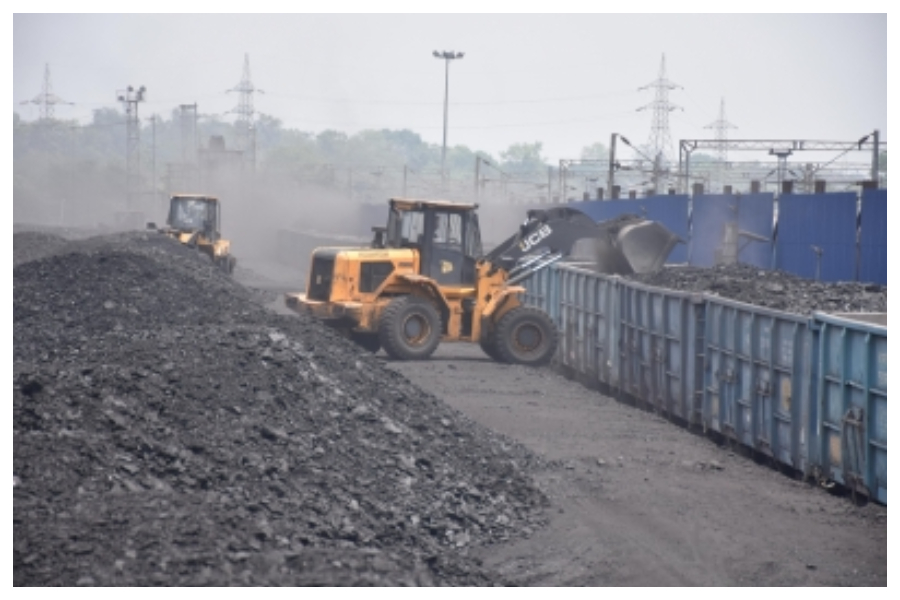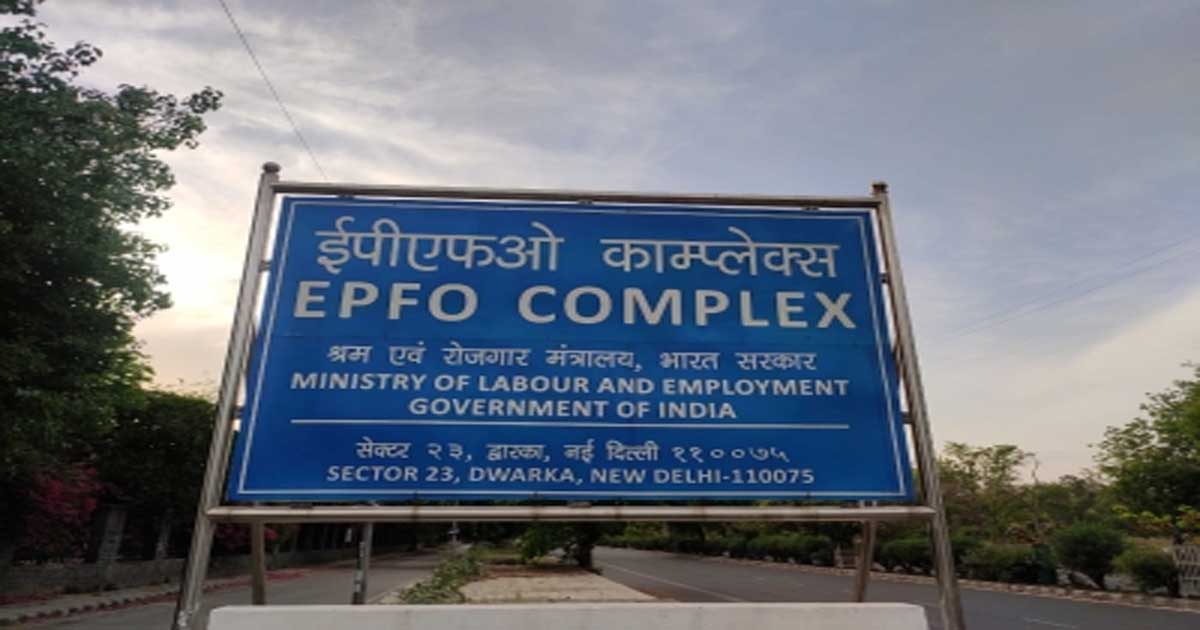Business
Misplaced activism undermining development: The Hasdeo story

What does Parsa in Hasdeo, Chhattisgarh, have in common with the northwest German village of Lutzerath or Brasilia in Brazil? They are hubs for protests against coal mining, with well-funded activists taking the forefront citing lack of protection for indigenous reserves.
In Chhatisgarh, the ‘adivasis’ (tribals) in Hasdeo have been resisting the destruction of their lands because of the coal mines in which Rajasthan government’s owned power company, Rajasthan Rajya Vidyut Utpadan Nigam Limited, has invested heavily for commissioning of 4,400 MW of thermal power stations.
They are supposed to source coal from its three Parsa East-Kanta Basan (PEKB), Parsa and Kente Extension Coal Blocks with annual production of close to 30 million tonnes.
However, it has been able to produce only half of it from the first phase of PEKB Block while both Parsa and Kente Extension coal blocks have failed to take off, courtesy the protests.
Meanwhile, in Brazil, indigenous groups have held many protests to pressure lawmakers into strengthening protection for indigenous reserves and limit illegal activity by miners and ranchers encroaching on their territory.
In Germany, protestors in Lutzerath are protesting the planned expansion of a nearby coal mine as they believe that the village has long been doomed to disappear to allow the gigantic Garzweiler open-pit lignite mine to expand further.
But Parsa’s case differs from Brazil and Germany. The vast majority of Brazil’s electricity is produced by hydro power with just 3 per cent coming from coal, some of which is imported.
Germany, on the other hand, is planning to abandon coal by 2030 as part of the transition away from fossil fuels and toward cleaner energy sources.
In India, the major production of electricity is achieved through coal, which is around 75 per cent of the total power generation. India’s per capita electricity consumption is half of Brazil, one-fourth of China and sixth of Russia among BRIC nations.
India has the fifth largest coal reserves in the world and it is the most affordable fuel for the developing nation.
Also, unlike Brazil, Parsa’s units are not illegal. The five petitions filed by protestors against the coal mines in Parsa at the Chhattisgarh High Court have been rejected.
But both the mines are still facing the heat of the protests, making the financial condition of hundreds of families, who willingly offered their land for the critical mine project a couple of years ago, worse.
Locals are neither able to carry on their agriculture activities nor are there any job prospects due to delayed mining projects. They are compelled to live on the money they received as compensation for their land.
Besides, thousands of direct and indirect jobs in the underdeveloped region, Rajasthan power utility is estimated to pay nearly Rs 2,000 crore to the Chhattisgarh government in terms of various taxes and royalties. Hence, it is critical for the financially weak state-owned power utilities to have captive coal blocks since there are unable to afford expensive imported coal.
But what the activists behind this smear campaign, who the locals believe are sponsored, don’t understand is that Rajasthan will plunge into severe power crisis if it fails to kickstart coal production from the second phase of PEKB Block where it is not possible to recover coal anymore from the first phase. Also, coal production from Parsa and Kente Extension blocks is critical for Rajasthan’s energy security in the future.
A senior official from Ventura Securities last week said steep electricity prices will not only affect households but also have an impact on the overall economy as well. Especially at a time, when the country is trying to be self-sufficient and self-reliant and is in the process of becoming a stiff competitor to international market giants like China.
As far as environmental hazards go, to say that the economic landscape for coal mining has changed dramatically in the past two decades won’t be incorrect.
According to a report by Coal Ministry in 2021, the government has put major thrust on sustainable development in coal mining and is taking multi-pronged action on both environmental and social fronts.
The Coal Ministry has moved forward with a comprehensive sustainable development plan and has initiated its speedy implementation.
Primary focus is on making immediate social impact through Out of Box measures, besides regular environmental monitoring and mitigation during mining operation.
PEKB, Parsa and Kente Extension blocks will be operated by long-term agreement for Mine Development and Operations (MDO) instead of conventional and inefficient short-term contracts for coal excavation.
In the case of MDO model, the mine developer and operator must ensure “responsible mining” practices. This compels mining companies to address the interests of all the stakeholders, including the local community and the government.
According to Indian legal and regulatory frameworks, the lease holder of the coal mine must compensate for tree felling by even higher afforestation. Both PEKB Block’s second phase and Parsa blocks have received all the approvals from the local communities, state and Central government authorities.
Rajasthan is facing hurdles on account of misinformation spread by a handful of professional activists targeting the development of its coal blocks.
The debaters are arguing that Rajasthan’s coal blocks will affect the biodiversity of Hasdeo forests by undermining Rajasthan’s impressive records in afforestation.
Rajasthan power utility has planted more than eight lakh trees to compensate for the impact on the local ecology to make PEKB Block the model mine in the country.
Rajasthan’s power utility is one of the first mining lease holders to deploy heavy duty tree transplanters to relocate more than 9,000 trees instead of cutting them down. Further, Chhattisgarh’s Forest Department has already planted more than 60 lakh trees.
In absence of desired support from the locals of the mining areas, resourceful activists have launched big budget social media campaigns. In April 2022, project-affected people came together in large numbers to urge the Chhattisgarh government to allow Rajasthan for its mining operations. However, the situation is still far from desirable.
Business
Explained: EPFO overhauls withdrawal rules to boost transparency, ease access for 30 crore members

New Delhi, Oct 14: The Employees’ Provident Fund Organisation (EPFO) has restructured its partial withdrawal regulations, combining 13 distinct clauses into three main categories: Essential Needs, Housing Needs, and Special Circumstances. This change aims to make it easier to access provident fund savings.
For the nearly 30 crore members who collectively own a corpus of about Rs 30 lakh crore, the reform aims to make the withdrawal process quicker, simpler, and more transparent.
The revised framework, referred to as EPFO 3.0, has standardised withdrawal limits.
Depending on the goal, members can now access up to 100 per cent of their eligible provident fund balance, which includes employer and employee contributions. However, at least 25 per cent of the EPF balance needs to stay in the account in order to maintain a safety net for retirement.
This implies that members can keep the required balance while withdrawing up to 75 per cent of their total corpus.
Additionally, the new regulations standardise the requirements for services. In the past, there were specific requirements for each type of withdrawal, such as five years of service for housing purposes and seven years for marriage-related withdrawals.
All partial withdrawals are now subject to a single 12-month minimum service period, which streamlines the procedure and removes any ambiguity.
Members will no longer need to provide documentation of their withdrawals under the “Special Circumstances” category, which is a significant relaxation. In the past, withdrawals under this heading required proof of emergencies, such as natural disasters or job loss.
The new clause, which permits members to leave without giving a reason, is anticipated to reduce red tape and expedite approvals.
The EPFO has also increased the withdrawal limits for marriage and education-related withdrawals. Instead of the previous cap of three combined withdrawals, members can now make up to 10 withdrawals for education and five for marriage.
Stricter guidelines for final settlements are also introduced by the reforms, though. In contrast to the previous two-month eligibility window, members can now only apply for an early final settlement 12 months after quitting their job and for pension withdrawal 36 months later.
In the event of a job loss, the 25 per cent minimum balance requirement only applies to partial withdrawals; it does not apply to full settlements.
While it is anticipated that the simplified framework will increase efficiency and transparency, workers who are laid off or have experienced extended periods of unemployment may find it difficult to obtain their provident fund savings immediately during a time when they may need it most, due to the revised settlement timelines.
Business
Silver hits record high above $52.50 as safe-haven demand fuel rally

Mumbai, Oct 14: Silver prices soared to an all-time high above $52.50 an ounce on Tuesday, boosted by a historic short squeeze in London and strong demand for safe-haven assets amid global economic uncertainty.
Spot silver rose as much as 0.4 per cent to $52.58 an ounce in London, breaking the previous record set in January 1980 when the billionaire Hunt brothers tried to corner the market.
Gold prices also climbed to a new record, marking eight consecutive weeks of gains, supported by rising geopolitical tensions and expectations of US interest rate cuts.
The rally in silver comes amid concerns over liquidity in the London market, which has triggered a worldwide rush to secure the metal.
Prices in London are trading at a rare premium compared to New York, prompting traders to fly silver bars across the Atlantic — a costly move usually reserved for gold — to benefit from higher prices.
The premium stood at around $1.55 an ounce on Tuesday, down from $3 last week.
Adding to the squeeze, silver lease rates in London — the cost of borrowing the metal — surged above 30 per cent for one-month contracts last Friday, making it expensive for traders to maintain short positions.
The situation worsened as strong demand from India in recent weeks further reduced available supply, following earlier shipments to New York amid fears of US tariffs.
Experts said the latest surge in both gold and silver reflects heightened market uncertainty.
Gold prices have jumped nearly 60 per cent this year, crossing the $4,100 mark for the first time, supported by geopolitical tensions, rate-cut expectations, and strong buying by central banks and investors.
Key US economic data such as inflation and retail sales are due later this week, but analysts warn that if the government shutdown continues, the release of these reports — including jobs data — could be delayed.
Business
Indian stock markets open higher amid global trade concerns, Q2 earnings buzz

Mumbai, Oct 14: Indian stock markets opened higher on Tuesday as investors looked past global uncertainties caused by the ongoing trade tensions between the US and China, while also tracking quarterly earnings from Indian companies.
The Sensex began the day at 82,562, gaining 235 points or 0.29 per cent. Similarly, the Nifty opened at 25,283, up 55 points or 0.22 per cent.
Among the top performers on the Sensex were HCL Tech, Tech Mahindra, Tata Steel, Infosys, Bharat Electronics, Bajaj Finserv, Ultratech Cement, ICICI Bank, Kotak Mahindra Bank, and Larsen & Toubro, which rose up to 1.3 per cent.
On the other hand, stocks like Eicher Motors, Maruti Suzuki, Axis Bank, Sun Pharma, State Bank of India, Bajaj Finance, and Bharti Airtel witnessed early losses.
In the broader market, both the Nifty MidCap and Nifty SmallCap indices were trading in the green, rising 0.37 per cent and 0.38 per cent, respectively.
Among sectoral indices, the Nifty Metal index led the gains with a 1 per cent rise, supported by positive momentum in metal stocks.
Meanwhile, the Nifty Pharma index was the biggest laggard, slipping 0.37 per cent.
As per the experts, IT stocks, particularly the largecaps, are viewed as overvalued by the market since they are facing many headwinds and some strong structural issues.
“On the other hand PSU stocks have been trading at very low valuations despite decent growth and robust balance sheets. This anomaly in valuations have been corrected by the market. This trend is likely to continue,” market experts said.
‘However, in growth stocks like digital companies and renewable energy, their long-term growth potential will continue to attract investment despite high valuations,” they added.
With Muhurat trading approaching, there is room for a mild rally, according to analysts.
-

 Crime3 years ago
Crime3 years agoClass 10 student jumps to death in Jaipur
-

 Maharashtra1 year ago
Maharashtra1 year agoMumbai Local Train Update: Central Railway’s New Timetable Comes Into Effect; Check Full List Of Revised Timings & Stations
-

 Maharashtra1 year ago
Maharashtra1 year agoMumbai To Go Toll-Free Tonight! Maharashtra Govt Announces Complete Toll Waiver For Light Motor Vehicles At All 5 Entry Points Of City
-

 Maharashtra1 year ago
Maharashtra1 year agoFalse photo of Imtiaz Jaleel’s rally, exposing the fooling conspiracy
-

 National News1 year ago
National News1 year agoMinistry of Railways rolls out Special Drive 4.0 with focus on digitisation, cleanliness, inclusiveness and grievance redressal
-

 Maharashtra11 months ago
Maharashtra11 months agoMaharashtra Elections 2024: Mumbai Metro & BEST Services Extended Till Midnight On Voting Day
-

 National News1 year ago
National News1 year agoJ&K: 4 Jawans Killed, 28 Injured After Bus Carrying BSF Personnel For Poll Duty Falls Into Gorge In Budgam; Terrifying Visuals Surface
-

 Crime1 year ago
Crime1 year agoBaba Siddique Murder: Mumbai Police Unable To Get Lawrence Bishnoi Custody Due To Home Ministry Order, Says Report












